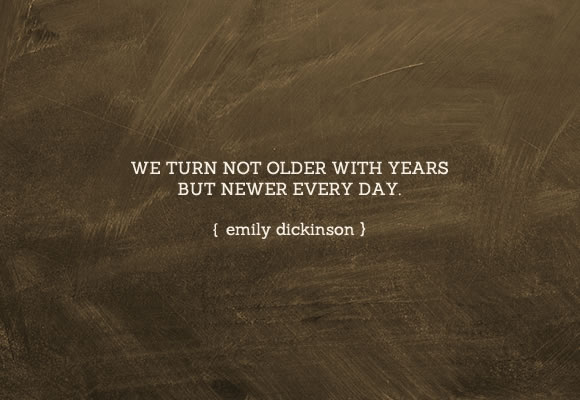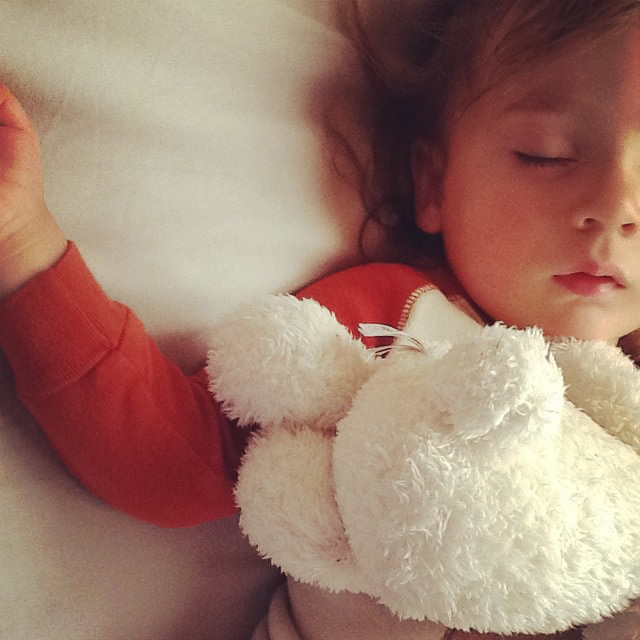(And no, this does not involve asking grown-ups if they have to go potty.)
Part 1: The magic of new humans
The moment I met my nephew Jameson was magic. Here was this brand new little person who was beautiful, tiny and could do absolutely nothing for himself. The fact that he was moving and breathing and crying was enough magic to attract the attention and affection of everyone he met.
When I went to see him at my sister’s house in Denver, his 6-week-old self would fall asleep on my chest and it was all I needed to just sit there and cuddle his sweet little 9 pound body while he napped.
The next time I visited, his 4-month-old eyes followed me around the room, and a smile lit up his face. Would the wonders never cease?
At Christmas time he was 10 months old, and he learned how to point. We spent the entire week walking around whatever room we were in, and pointing at things, and saying, “oh!”. The ornaments on the tree. The twinkly lights. The cat. The ceiling fan. Oh, how we loved ceiling fans.
Then he learned to say “mamama” and “rawr!” and my heart melted to a puddle. How does he keep getting more wonderful all the time? I mean, I loved him before…but the way his face lights up when I make him laugh, it’s a whole new game.
Living a thousand miles away from this sweet little creature compels me to not take our meetings for granted. Each time I see him, he is the same little boy, but he is also new and different. And I know that when I see him again in a few months, he will be doing new things. He will have moved beyond some of the things he’s doing now.
When we’re talking about a toddler, the reasons for these changes are fairly straightforward: he is using a limited set of words and pointing because developmentally, that’s where he’s at right now. He’s clinging extra close to his mama today because he had a big fall yesterday. He’s pointing at Christmas tree ornaments because his Auntie Shell taught him that.
So we take the changes as they come, and try not to cry too many tears when the little one grows.

Part 2: What about grown-up humans?
We see children with such purity when they are new and young and changing before our very eyes. The wonder and purity of this growth gets lost a bit when we become “grown ups”. Somewhere along the line, we become less captivated by the part that changes, and start to think of one another in patterns. He’s shy; she’s short tempered; they’re not reliable. It’s always been that way.
But we keep growing, even when we’re not children anymore. Our bodies may reach adulthood, but we are constantly learning new ways of relating, having brand new ideas, stretching out of our comfort zones and developing new habits. When I was a kid, someone told me, “You won’t recognize yourself in four years.” And it’s stuck with me for the sheer truth of it—think of yourself four years ago. Would she recognize you out of a line-up? Mine wouldn’t.
How would you be different if you approached all your relationships with the wonder of being with a toddler? What if you treated each person you see as though they are different than they were before, and will be different again the next time you meet them?
What would be different if you approached each interaction as a fleeting scene in a transient phase?
You might be more patient, for one thing.
You might find it easier to believe that both good and bad come in turns, but neither one stays forever.
You might be more likely to approach changes as neutral rather than bad.
Maybe you’d be more open to seeing certain behaviors as the result of other factors, instead of character flaws. (Your husband is snappy this evening because he’s stressed about work, not because he is an innately impatient person.)
Part 3: You’re a human too, you know.
I’m going through a career transition right now, and have been struggling to find a routine for my days. The first few weeks were particularly stressful, because I found myself awash in the waves of one day after another without any habits or routines to hold on to. I felt guilty and wrong for not being more stable, predictable and productive. The uncertainty of my newly self-employed status, coupled with the loss of the structure I’d had for the last seven years felt…unbalancing. Uncomfortable. Wildly unfamiliar. And of course, terrifying. (What if I start sleeping in every day and answering the door in pajamas and getting behind on my work and customers start hating me and I run out of money? OH MY GOD I’M GOING TO BE DESTITUTE UNLESS I FIND A ROUTINE.)
I had one really great afternoon where I got a ton of work done at a coffee shop…then I thought, is that the habit I want to get into? Working at coffee shops all the time? That can’t possibly be the solution I’ve been looking for, that’s not sustainable. The real solution has to look more structured, more professional than that.
But this is just a phase—one that I’ve never encountered before. Instead of wallowing in the discomfort of not having a routine, or wondering if this new routine has longevity, I can think:
I’m going through a phase where I’m getting a lot done at coffee shops. I’m going to ride this to see where it ends.
Wouldn’t you make a lot more progress toward your goals and desires if you approached them as “trying things on for size” instead of asking, “can I commit to this…forever”? And wouldn’t that journey feel better, all the way through?
The practice of looking at yourself and the people you love as dynamic and transient instead of permanent and stuck is key, I think, to loving what you have. (Because it’s all connected, really.)
Here are some questions to get you started:
- What is he doing that he wasn’t doing before?
- What habits has she moved past since I saw her?
- How is she approaching the world differently than before?
- How am I acting this week compared to last week, and what is impacting the change?

Now I’d love to hear your thoughts—how would treating your spouse, your co-worker or yourself as a toddler change your interaction?